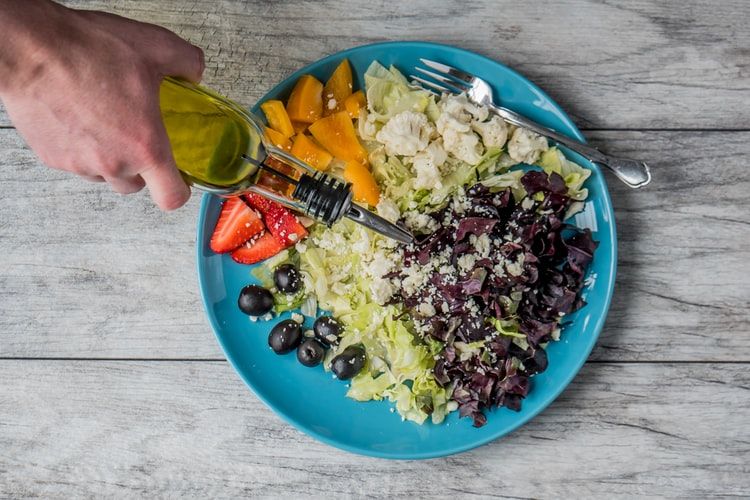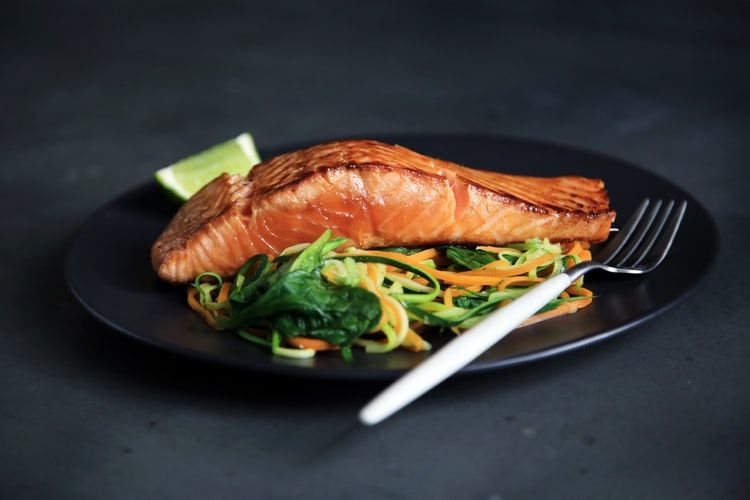
You’ve tried any and all diets of every shape and size but haven’t found one that seemed to be your perfect fit. You aren’t just wanting to lose weight, but you’re wanting to improve your overall heart health and cholesterol, but all these diets appear to be aimed strictly at the goal of weight loss.
With the Mediterranean diet, you can improve your heart health and cholesterol without even realizing you’re eating healthy, plus if you are diabetic or on the verge of diabetes, this diet can improve and help blood sugar levels!
What is The Mediterranean Diet?
The name comes from the diet of people who live around the area of the Mediterranean sea, such as Italy, Greece, and Croatia. While most other diets focus on weight loss based on meal control and limiting all sorts of your favorite foods, the Mediterranean diet centers around a plant-based regimen, loaded with delicious veggies and healthy fats, such as olive oil and fish, improving your heart health and blood sugar tremendously.
The main staple of this diet plan is to avoid red meat, sugar, and dairy (a small amount of yogurt and cheese is allowed). This may sound difficult, but with all of the indulgent and savory recipes this diet has to offer, you’ll forget how much you love all your sugars and red meats!
Whether you have heart and cholesterol problems or not, you can truly benefit from this diet one way or another. You’ll experience clean eating, with a rainbow of colors glistening on your plate, rather than a bunch of bland, processed foods like you’re used to eating. You will feel like a whole new person if you can stick to this diet!
Does It Help You Lose Weight?

As I mentioned earlier, the Mediterranean diet does not focus solely on weight loss, but rather repairing and promoting your overall health. It wasn’t ranked #1 for the Best Diets Overall by the U.S. News & World Report for nothing!
You can throw away your food diary and calorie calculator because you simply won’t need it. The needlessly complicated process of counting calories is outdated and unnecessary when you’re on a diet like this, with the focus on you and your health– plus, having a couple snacks a day isn’t out of the question; in fact, it’s recommended!
Most Important Foods of the Diet
While there are many different foods that you will base your diet on, there are some core foods that will need to be included in most of your meals when taking part in the Mediterranean diet. Here is what you can expect to eat a ton of over the amount of time you decide to partake in this diet!
- Olive Oil

Benefits- You can reduce the risk of heart disease by 19 percent by replacing your highly saturated fats with plant-based fats, such as olive oil.
- Tomatoes
Benefits- Tomatoes contain lycopene, which is a very powerful antioxidant known to fight some cancers, such as those of the breast and prostate. Different components in tomatoes might also help reduce the risk of blood clots, preventing cardiovascular disease.
- Salmon

Benefits- Packed with omega-3 fatty acids, you can count on salmon to protect your heart against disease, as long as you stick to at least two salmon-rich meals a week.
- Walnuts
Benefits- Walnuts are a double threat, lowering LDL cholesterol and impacting your gut’s microbiome, improving digestive health. They are rich in polyunsaturated fats.
- Chickpeas
Benefits- These little dudes pack a ton of fiber within their small capacity, along with zinc, folate, iron, and magnesium. You can eat them plain, roast them, or take it a step further and make some hummus!
Other foods that are Mediterranean diet-friendly are avocados, blueberries, broccoli, chia seeds, flaxseed, kale, quinoa, and strawberries.
Sample 3-Day Meal Plan
Day 1
Breakfast
Whole grain toast with a soft boiled egg, and a piece of fruit of your choice (pomegranate or strawberries are great foods packed with antioxidants)
Snack
Hummus and veggies to dip
Lunch
Lentil salad with roasted red peppers, sun-dried tomatoes, capers, and a balsamic vinaigrette
Snack
Handful of pistachios
Dinner
Salmon, quinoa and garlicky greens, sauteed in a skillet
Day 2
Breakfast
Omelet with tomatoes and fresh herbs
Snack
Dates stuffed with almond butter (for your sweet tooth!)
Lunch
Salad topped with white beans, veggies, olives, and a little chicken
Snack
Yogurt and fruit (peaches pair well with Greek yogurt)
Dinner
Grilled shrimp skewers with roasted Brussels sprouts (YUM!)
Day 3
Breakfast
Veggie frittata
Snack
A small serving of berries (about a handful)
Lunch
Smoked salmon, capers, lemon, whole grain crackers, and raw veggies
Snack
Mashed avocado with lemon and salt, maybe some cucumbers to dip
Dinner
Pasta with red sauce and mussels (for your hearty fix)
Other meats and snacks include tuna, olives, greens, zucchini, chicken breast, and Greek yogurt!
You can find some more ideas for Mediterranean meal plans here.
Foods to Avoid on the Mediterranean Diet
- Refined grains (white pasta, white bread, pizza dough)
- Certain refined oils such as canola oil and soybean oil– it’s best to stick with olive oil for the most part!
- Foods with added sugars, like soda, candy, pastries
- Deli meat, hot dogs, and any other processed meat
- ANY and ALL processed and packaged foods
Other Things to Remember When on the Mediterranean Diet
- Keep your grains WHOLE and your sugars NATURAL! Fruit, almond butter, and things that are naturally sweetened will give you your sweet fix without breaking your diet plan.
- Extra virgin or Virgin olive oil is the best way to go!
- Eat more fish– NO red meat!
- Keep nuts as your main snacks to fight hunger between meals
- Sip on a little wine!
- Eat as many veggies as possible– all day long if you want!
The most important thing to remember about the Mediterranean diet is that it is NOT centered around losing weight; a lot of diets will push the limits of physical health and borderline starvation, whereas the Mediterranean diet focuses on health and actually enjoying your meals.
You can snack, have full meals, and even indulge in some sweet desserts (mostly fruit) without feeling guilty about what you’re eating. It may be difficult to leave your normal eating habits behind, but once your body has adjusted to the glorious foods of this diet, you will never want to go back!
Also Read- How to Lose 5 Pounds in a Week- Meal Plan
